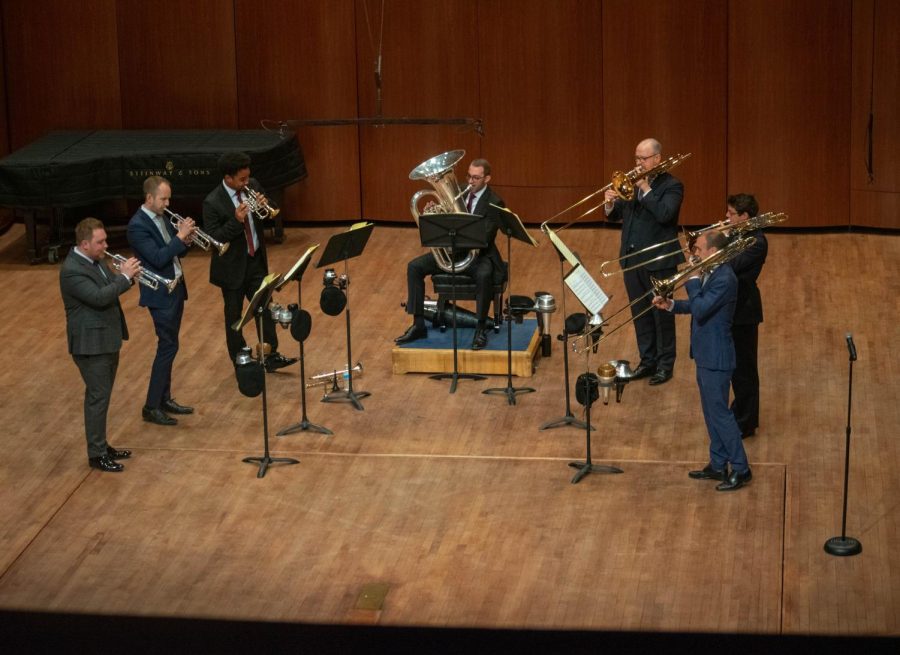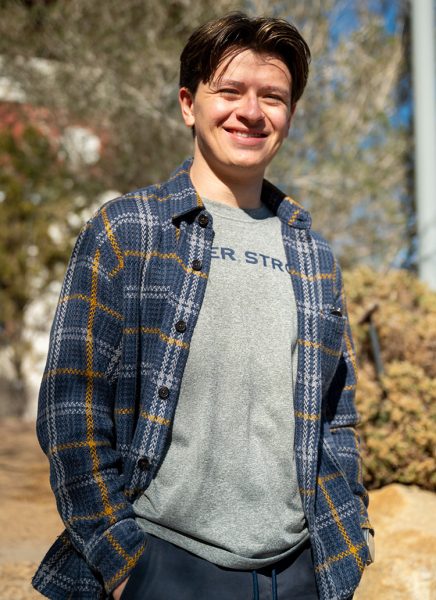The Septura Brass Septet made their fourth trip to Texas, Feb. 24, performing “The Special Relationship: The contrasting sounds of Britain and America,” in the UTEP Fox Fine Arts Recital Hall. Well attended by students, faculty and the El Paso community, the Septura Brass Septet gave a performance to remember.
Reflecting on the twentieth century, the United States and Britain had a deep political partnership. However, it is important to remember that both countries had extremely different cultures. Due to this, American and British music had different sounds from one another. The purpose of this performance was to demonstrate these differences while maintaining the originality of each piece.
The performance included pieces written by British composers Gerald Finzi, Edward Elgar and Pete Walton, and American composers George Gershwin and Aaron Copland. With the exception of the pieces by Walton, the entire performance was arranged by Matthew Knight.
The Septura Brass Septet consisted of three trumpets, one tuba and three trombones, all utilizing mutes for their instruments throughout the performance. One of the members would occasionally switch out his trumpet for a smaller coronet-style instrument. The entire performance was arranged so that the septet performed all the British pieces first, and the American pieces followed the intermission.
The London-based and critically acclaimed Septura Brass Septet began their performance with the Gerald Finzi piece, “God is Gone Up.” Originally a choir piece, the ensemble was able to almost mimic the original song’s vocals, maintaining the same emotion in which Finzi wrote the piece.
Following their performance of Finzi, one of the members of the ensemble gave a brief introduction to the audience before continuing the performance with Edward Elgar’s “Serenade.” Elgar himself never touched a brass instrument until his forties, when he began to learn the trombone.
Originally written for string orchestras, containing three parts and composed in 1892, the septet was able to give Elgar’s piece the timeless sound that it deserves, maintaining its mature style and slow movement.
“Time Out of Joint,” arranged and written by Pete Walton followed. Walton is the only one of the five composers featured whose career did not span throughout the early twentieth century. Also containing three parts, the piece was written during the COVID-19 lockdown in the United Kingdom and was meant to portray the uneasiness and stress of the time.
Considering the pandemic occurred on both sides of the pond, it made sense for the septet to place “Time Out of Joint” in the middle of their performance, as it made for a great transition into the American pieces.
A brief intermission was given before the septet proceeded with their first American piece, “Preludes” by George Gershwin. A composer who was synonymous with the genres of jazz and classical in the early twentieth century, Gershwin’s style was prominent in the piece performed by the ensemble.
The final piece performed by the ensemble was Aaron Copland’s “Appalachian Spring.” After agreeing to write music for a ballet in 1943, Copland originally called the piece “Ballet for Martha,” for choreographer Martha Graham.
The name “Appalachian Spring” better suited the song as its harmonies sound so natural. The ensemble excelled at capturing this natural sound, as the performance ended with a standing ovation from the audience.
Nicholas Maes may be reached at [email protected]








